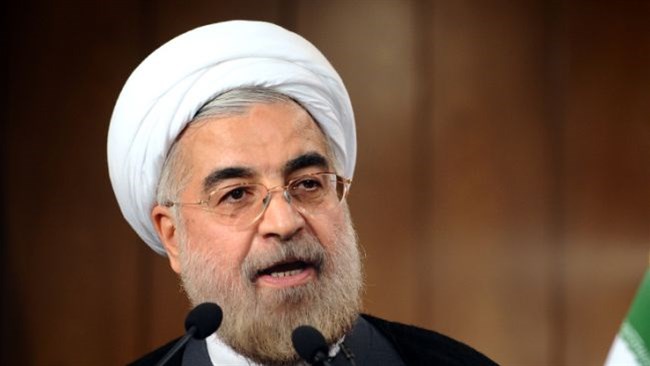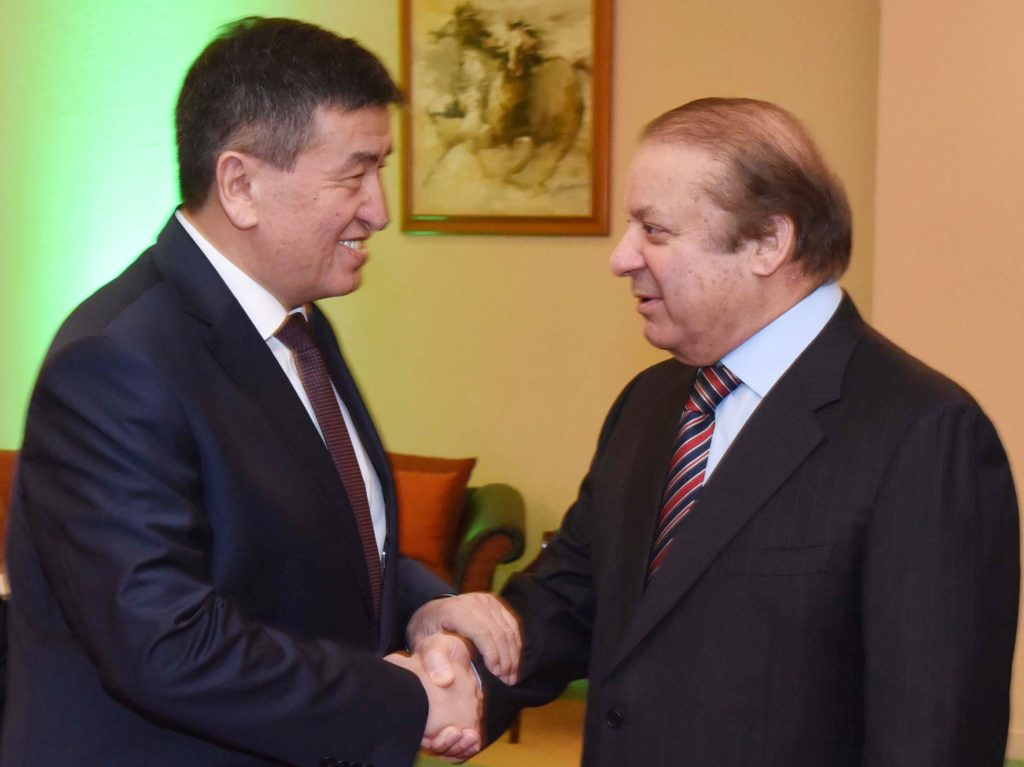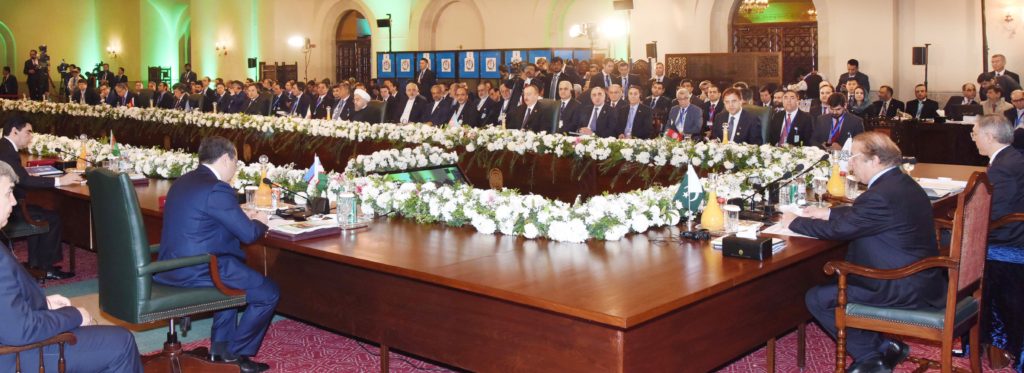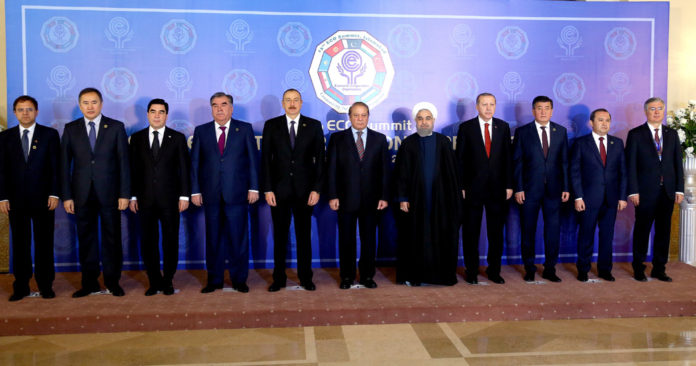The Economic Cooperation Organization ECO is the successor organization of RCD (Regional Cooperation for Development that was formed in 1964 leveraging the status being in American block) and was re-formed in 1985 by Iran, Pakistan and Turkey under a mutual agreement to further enhance cooperation in economic, trade and tourism sectors due to border connectivity. The ECO was expanded in 1992 after the collapse of the USSR to include seven new members, Afghanistan, Azerbaijan, Kazakhstan, Kyrgyzstan, Tajikistan, Turkmenistan and Uzbekistan. The main objective of ECO was to develop necessary infrastructure and institutions among the member states to make full use of the available resources in the region and provide sustainable development. It should be kept in mind that Central Asia (CA) was the region of the ‘Great Game’ between the British and Imperial Russia. This British-Russian competition was significant not only because of the hydrocarbon resources but also for struggle for influence. Elaborating one other historical fact of World War II, one of Germany’s central goals was to expand southeast into the Caucuses and CA to gain control of the farmland and natural energy resources.
The 13th Meeting of the ECO Heads of State and Governments was hosted by Pakistan on 1st March 2017, this was preceded by the 22nd meeting of the ECO Council of Foreign Ministers on 28th February 2017 in Islamabad. Senior officials from Member States met on 27th February 2017 in Islamabad to make final preparations for the Summit. The Summit reviewed the affairs of ECO in the light of the new and emerging global and regional circumstances and agreed on course of actions that ECO should follow in expanding regional economic cooperation among its member states. The new ECO Vision 2025 was also adopted.
At the opening session, Prime Minister Nawaz Sharif was elected as chairman of ECO; he took over chairmanship from President of Azerbaijan H.E Ilham Aliyev. Addressing the Summit after assuming chairmanship, Nawaz Sharif called for “intensified collaboration to exploit enormous potential of ECO to turn the region into a citadel of peace, progress and prosperity. The main theme of the Summit, Connectivity for Regional Prosperity, represents our collective vision to build ECO into a community of shared prosperity through greater economic integration and close people-to-people contact,” Nawaz Sharif added during the day-long opening session of the Summit.
The Summit adopted the Islamabad Declaration and the ECO Vision 2025, laying out road map for enhanced economic cooperation and connectivity. The Council of Ministers had already approved the documents. PM Sharif called for sustained focus on key areas identified for cooperation in the Islamabad Declaration including trade, transport and energy which could lead to a transformative change across the region. Chinese vice Foreign Minister Zhang Yesui was also present at the meeting on special invitation from the Government of Pakistan and ECO secretariat.
ECO Secretary General Halil Ibrahim pointed out that ECO continues to implement programs and plans decided by its decision making bodies while transport and energy are the core areas being focused by the organization. He added that special emphasis has been given to corridors which will provide access to the ECO landlocked countries and tourism has been elaborated as the priority area in the ECO Vision.

Addressing the ECO Summit, president of Iran H.E Mr. Hasan Rouhani said that “With more understanding amongst the heads of State and Governments, we would be able to take longer and decisive steps in advancing the programs and activities of the Organization. ECO can play a vital role in building the future of economy of our region and for this to happen, the ECO needs restructuring. The 21st century is the era of emerging economy of Asia and that the economic activities are transferring from the West to East. We have to connect ECO countries through highways. Promotion of connectivity will help development and prosperity in Asia. Iran is ready to play its role in solidifying the Economic Cooperation Organization and Holding of 13th ECO Summit in Pakistan is a good gesture and it will help implement long terms plans of the Organization”.
Turkish President Recep Tayyip Erdogan called for early completion of reforms in ECO, strengthening of human resource of ECO Secretariat and an evolution of a mechanism for ownership of projects. He emphasized on cooperation in energy and said his country would support all initiatives aimed at realization of this objective. The Turkish President also underscored the need for greater cooperation in agriculture, environment and tourism. He said Turkey is implementing a number of big infrastructure projects that would link the country with neighboring countries and regions through rail, roads, sea and air. This included construction of the world’s largest airport in Istanbul. Recep Tayyip Erdogan also urged the need for resolution of political disputes and joint efforts to tackle the menace of terrorism.
Turkmenistan President Gurbanguly Berdimuhamedow stressed that “ECO is an important platform for constructive dialogue among member states and has set the direction of development of the member states. ECO has significant potential for expanding partnership particularly in vital issues including security and there is big need for cooperation among member states in energy. Turkmenistan’s energy strategy is multi-directional and construction work on Turkmenistan-Afghanistan–Pakistan-India gas pipeline has been started and implementation of this project is being realized with the participation of ECO member states”.
Azerbaijan President Ilham Aliyev laid special emphasis on mutual cooperation among the ECO countries in the field of infrastructure, connectivity, and transportation for the development and the progress of the region. He condemned the growing Islamophobia and made it clear that Islam is a religion of peace and it should not be linked with terrorism. President Ilham Aliyev thanked Pakistan for its support on the issue of Nagorno-Karabakh and elaborated his contributions towards strengthening ECO during his era of chairmanship.
President of Tajikistan Emomali Romanov said that “Trade, investment and effective use of energy resources constitute key elements of regional cooperation. ECO member states should pay greater attention to implementation of joint infrastructure projects to facilitate connectivity of transport and energy networks in the region and the activities of the ECO should help promote socio-economic development, poverty reduction and improvement in living standards in the member states”. The Tajik President also emphasized upon the need for developing road and sea routes through establishment of transport corridors. He expressed the confidence that implementation of the high voltage power transmission line CASA-1000, acknowledged to be the first ever energy project between South and Central Asian regions, would help realize the objective of shared progress.

Addressing the Summit, Prime Minister of Kyrgyzstan, Sooronbay Jeenbekov said that “ECO will make rapid progress to reap benefits of mutual economic cooperation under the leadership of Pakistan. Collective and joint approach of the ECO member states will make the organization a vibrant platform for mutual cooperation and bring development and prosperity to the region”. He laid great emphasis on cooperation in sectors such as trade, transport, agriculture, economy, tourism, science & technology.
The 13th ECO Summit concluded with the Islamabad Declaration and Vision 2025, emphasizing the need for doubling intra-regional trade in the next five years and promoting connectivity. The declaration called for development of transport and communication infrastructure, facilitation of trade and investment, promotion of connectivity with other regions, welcomed international decade action for water, effective use of energy resources and undertaking measures for making the ECO effective and efficient. Moreover, Vision 2025 underscored promotion of cooperation among member states.
ECO Summit’s declaration and ending notes are considered and showcased as a major success for Pakistan in the current geo-political scenario and also in the context of foreign affairs, especially in regard to India’s open opposition to China Pakistan Economic corridor CPEC and Indian Prime Minister Modi’s ambitions to isolate Pakistan as mentioned in his Indian Republic day speech. Modi’s confidence had built up due to his success in sabotaging the SAARC Summit last year that was to be hosted by Pakistan. Indian Prime Minister was able to influence Bangladesh and Afghanistan for helping him sabotage the SAARC Summit.
Moreover, India was also able to penetrate some of Pakistan’s traditional allies like UAE due to Pakistan’s reluctance to be involved in the Yemen conflict that caused certain ups and downs and Gulf countries saw this as a point of disappointment. However, the long term interests of Afghanistan and GCC countries are more aligned with Pakistan’s economic and military strength and India will not be able to sustain this temporary diplomatic gain for long term. Pakistan has to launch an aggressive and offensive diplomatic campaign to reverse Indian machinations and knock down Modi’s agenda.
In order to handle the situation that emerged after cancellation of the SAARC Summit, Pakistan seems to be now more interested in extending SAARC to include China as well. This step is a great diplomatic move and will ensure the sustainability of the SAARC as an organization, if SAARC members are interested in preserving it. Another idea that is under discussion amongst scholastic circles in Pakistan is to discard SAARC altogether and instead focus forums like ECO, OIC and SCO. The brightest aspect of the ECO member countries is that many of them are also members of SCO and OIC one way or another and Pakistan being a vital country for all these organizations it has lot of has an edge over India and chances to promote trade and commerce are very bright. The main point for all these counties and even in broader global scenario, China Pakistan Economic Corridor is the key point of interest for all countries who want “to and from” trade with China. Pakistan being on the junction of three major regions has a unique geo strategic location and this position must be exercised to full potential for getting maximum benefits.
Due to Pakistan’s strategic location, it provides the shortest outlet to landlocked Central Asian Republics to the Arabian Sea, Indian Ocean and further to rest of the world. Pakistan acts as bridge between South and West Asia for resources of Middle East and South Asia. The Karakoram Highway is an ancient Silk Route between Afghanistan, Tajikistan, China and Pakistan and for having access to Gwadar port, this route provides the land link to Central Asian Republics through Tajikistan. Pakistani ports which are around 1700 km away from Central Asian Republics are the shortest route for economic link between Pakistan and Central Asian Republics. It can give boost to bilateral trade in raw material and manufactured goods. It is to be said that Pakistan has to build cultural and economic ties with Central Asian Republics which will provide a natural strategic depth to Pakistan against the hegemony of India in South Asia.
Pakistan and Central Asian Republics have many things common in their societies like the religion of Islam, having tribal system, architecture, art and design, etc. In ancient times the people of both regions carried out bilateral trade and Afghanistan was used for reaching each other’s region and Peshawar was the main city used for trade. The Hindko language of Peshawar was also used for trade dealings between Central Asia and the Sub-Continent. Samarkand-Multan to Lahore route was used for trading. Ports of Pakistan can give boon to Central Asia and future developments can lead this region as another Middle East when linked with outside world.
The Central Asian Republics will be linked with Gwadar Port through the Karakoram Highway, Turkham and Chaman. This route will bring lot of economic activities for Pakistan as well as for Central Asian Republics. If this proposed route and resource corridor is established then Pakistan’s dependence on the Middle East will definitely be reduced. TAPI is also a good proposed project to utilize the energy resources of Central Asian Republics. The Gwadar Port is the first step towards fulfilling Pakistan’s ambition of becoming a Trade and Energy Corridor (TEC) for China, which will one day help ship Persian Gulf oil from Gwadar overland through Pakistan to China.

On the other hand, Indian interests in the region are very aggressive and Pakistan must keep a close eye on Indian diplomatic and commercial activities throughout ECO and Middle East regions. Some key Indian interests in Central Asian region are highlighted below for reader’s interest.
1. Central Asian region’s energy resources.
2. Aggressive pursuance of geostrategic and economic goals.
3. Preventing the possibility of an emerging Muslim block
4. Check on Pakistan’s influence in CA
5. Protecting the Indian Interest, within conflicting interest of USA, Russia and China.
6. Containment of China.
To prevent Pakistan’s influence in Central Asian Republics, India is also improving its relations with Afghanistan and Iran. India is providing training assistance to Afghanistan armed forces, it is welcoming Afghan students, its media is collaborating with Afghan media, and a number of Indian Journalists are also working there. India has also offered Afghanistan assistance in the information technology (IT) sector and is also capturing Afghan markets for export of cheaper Indian goods and collaborating in Afghanistan’s reconstruction programs. Having a presence in Afghanistan, India can easily create insecurity problems for Pakistan, posing threat to Pakistan from two sides.
The main economic point India sells to the world is its cheap labor and cheap products. There is no emotional religious and cultural bond with Central and West Asian countries. This is the point where Pakistan has to tackle the Indians and develop such policies in an aggressive manner that can prevent India from gaining further diplomatic and economic achievements.
Having said all above about Indian ambitions and her attempts to penetrate Central Asia and West Asia, it is still not easy for the Indians to make any breakthrough in the presence of OIC and ECO, subject to quick counter balance strategy from Pakistan. Both are Muslim economic blocks having deep cultural and historical bonds. Even the SCO block initiated by China and Russia added both India and Pakistan as new member states and majority of the other countries are also members of the ECO. On the top of this ECO Heads of States during the Islamabad Summit showed keen interest in China Pakistan Economic Corridor (CPEC), which has introduced a major dimension in the regional strategic paradigm which will certainly undermine Indian influence and boost Pakistan’s role in Central and West Asian regions, both economically and militarily.





